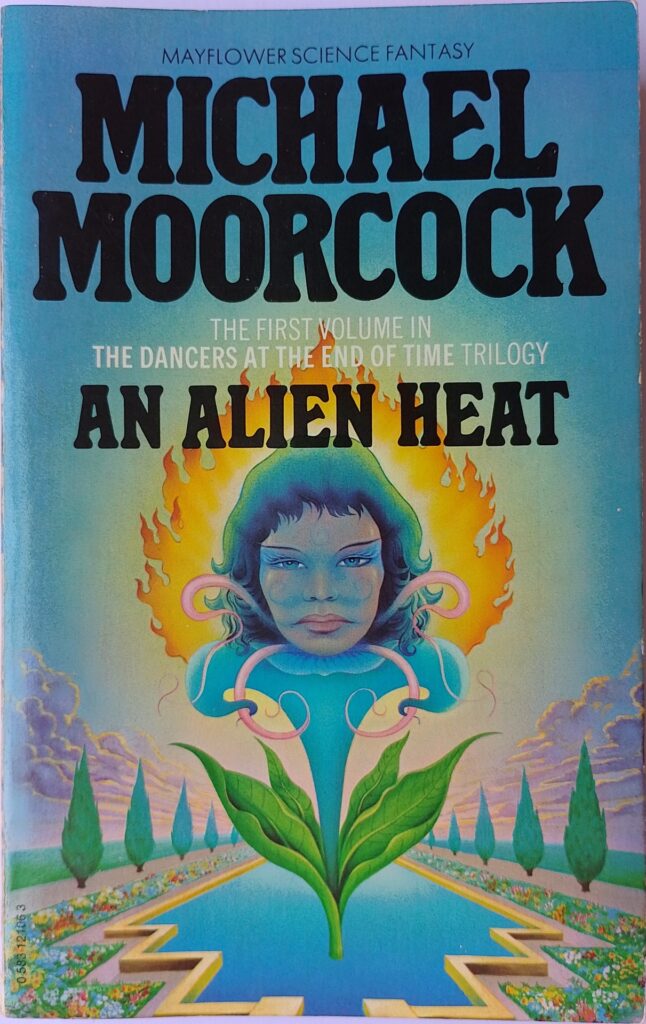First published 1972. Granada paperback, 1979, pp 158, c.55,000 words.
What a period piece this is with its surreal, trippy feel, characters with weird names indulging in every fantasy without guilt. It is a decadent world without want, reducing almost immortal adults to act out childish fantasies. It is set primarily in a very far distant future Earth where any alien visitors, whether of the present or time travellers are fair game for the ‘collections’ of these all-powerful humans, assuming they are interesting enough. Some of the humans try out various characteristics of behaviour as games and to pass the time, for there is no need for aging and death here. Almost no children are born. Infinite power tends to lead to infinite boredom.
Jherek Carnelian, the protagonist, meets a woman, Amelia Underwood, who has accidentally travelled from the nineteenth century. Carnelian decides he is in love with her because he has a fascination with that period – his transport of choice is an aircar shaped like a steam train engine. She has all the sensibility of her period and is shocked by Carnelian’s lax morals and she decides to reform him, which fits with his adoption of ‘virtue’ as his characteristic, despite having little understanding of what that means. Carnelian’s friends think this is all very amusing and try to help or hinder the relationship. Underwood is sent back to her own time and Carnelian decides to follow.
The extensive passage set in nineteenth century London is the most entertaining section of the book, with well-drawn, if somewhat Dickensian, characters and settings. Carnelian’s knowledge of the period is severely distorted which leads to some amusing misunderstandings.
What is not clear is how and why some of the time-travel occurs. Some is clear enough use of time-machines (shades of H G Wells). Others are largely left unexplained and might be interpreted as dreams, and indeed the whole book can be read as an elaborate dream. Pleasant and nightmare fantasies abound.
Moorcock writes easily digestible prose, with some amusing references to films, e.g. Casablanca, TV series of the period (Dad’s Army), and the caricature of horrible British food of the nineteenth century. He can be very funny: ‘His love for her had grown profound (or, at least, he thought it had, not being absolutely sure what “profound” meant).’ [p96]. No one can complain about his imagination which blossoms abundantly, perhaps at the cost of real engagement with story.
The nineteenth century passage is the best part of the book; the rest comes across as rather childish and dated. It is an interesting period piece.
Wikipedia biography of Moorcock: https://en.wikipedia.org/wiki/Michael_Moorcock
Wikipedia summary of the book: https://en.wikipedia.org/wiki/The_Dancers_at_the_End_of_Time
Others’ reviews of the book: https://www.goodreads.com/book/show/1234727.An_Alien_Heat?ref=nav_sb_ss_1_13
© William John Graham, May 2023

